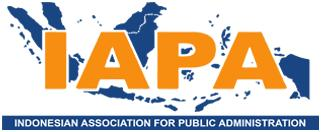Building Citizen Satisfaction with E-Government Services: A Case Study of the Population Administration Information System (SIAK)
Abstrak
In the era of globalization and digital transformation, e-government has become the main strategy for the government to improve public services. Despite progress, citizen satisfaction remains important. This research focuses on Indonesia's Population Administration Information System (SIAK). Using a quantitative research design and Structural Equation Modeling (SEM-PLS), we analyzed factors such as trust in the government, its perceived usefulness, perceived quality of electronic services, and digital literacy. Our findings show that digital literacy and the quality of electronic services significantly affect citizen satisfaction. Trust in the government has a positive effect but is not significant. To increase citizen satisfaction, Indonesia must prioritize improving digital literacy and the quality of electronic services. This will ensure that e-government initiatives effectively meet the needs and expectations of its citizens.
Kata Kunci
Teks Lengkap:
PDF (English)Referensi
Aburbeian, A. M., Owda, A. Y., & Owda, M. (2022). A Technology Acceptance Model Survey of the Metaverse Prospects. In AI (Vol. 3, Issue 2, pp. 285–302). https://doi.org/10.3390/ai3020018
Acharya, S., & Mekker, M. (2022). Public acceptance of connected vehicles: An extension of the technology acceptance model. Transportation Research Part F: Traffic Psychology and Behaviour, 88, 54–68. https://doi.org/https://doi.org/10.1016/j.trf.2022.05.002
Adyas, D., & Anggeraiyantie, L. D. (2019). The Influence of the Population Administration Information System (SIAK) on the Work Effectiveness of Employees at the Bogor Regency Population and Civil Registration Office. JRB-Journal of Business Research. https://api.semanticscholar.org/CorpusID:198730097
Afrizal, D., & Wallang, M. (2021). Attitude on intention to use e-government in Indonesia. Indonesian Journal of Electrical Engineering and Computer Science, 22, 435–441. https://api.semanticscholar.org/CorpusID:236768609
Agus, G., Yudantara, P., Musmini, L. S., & Yuniarta, G. A. (2019). Analysis of Acceptance and Success Implementation of Academic Information System (SIAk) Based on Technology. Proceedings of the International Conference on Tourism, Economics, Accounting, Management, and Social Science (TEAMS 19). https://api.semanticscholar.org/CorpusID:212781681
Al-Adwan, A. S., Li, N., Al-Adwan, A., Abbasi, G. A., Albelbisi, N. A., & Habibi, A. (2023). "Extending the Technology Acceptance Model (TAM) to Predict University Students' Intentions to Use Metaverse-Based Learning Platforms". Education and Information Technologies, 28(11), 15381–15413. https://doi.org/10.1007/s10639-023-11816-3
Bailey, D. R., Almusharraf, N., & Almusharraf, A. (2022). Video conferencing in the e-learning context: explaining learning outcome with the technology acceptance model. Education and Information Technologies, 27(6), 7679–7698. https://doi.org/10.1007/s10639-022-10949-1
Chahal, J., & Rani, N. (2022). Exploring the acceptance for e-learning among higher education students in India: combining technology acceptance model with external variables. Journal of Computing in Higher Education, 34(3), 844–867. https://doi.org/10.1007/s12528-022-09327-0
Dabas, R., & Bajaj, R. (2019). A Study on the Impact of e-Service Quality on User Satisfaction in the Online Banking Sector. International Conference on Advancements in Computing & Management (ICACM) 2019 (Archive). https://api.semanticscholar.org/CorpusID:233768496
Damayanti, L. D., Suwena, K. R., & Haris, I. A. (2019). Analysis of Community Satisfaction with Public Services Based on the Community Satisfaction Index (IKM) of the Sawan District Office, Buleleng Regency. Journal of Economic Education Undiksha, 11(1), 21. https://doi.org/10.23887/jjpe.v11i1.20048
Dhingra, S., Gupta, S., & Bhatt, R. (2020). A Study of Relationship Among Service Quality of E-Commerce Websites, Customer Satisfaction, and Purchase Intention. Int. J. E Bus. Res., 16, 42–59. https://api.semanticscholar.org/CorpusID:220059805
Effendi, P. M., & Susanto, T. D. (2019). Test of Citizens' Physical and Cognitive on Indonesian E-Government Website Design. Procedia Computer Science, 161, 333–340. https://doi.org/https://doi.org/10.1016/j.procs.2019.11.131
ElMassah, S., & Mohieldin, M. (2020). Digital transformation and localizing the Sustainable Development Goals (SDGs). Ecological Economics, 169(August 2019), 106490. https://doi.org/10.1016/j.ecolecon.2019.106490
Fussell, S. G., & Truong, D. (2022). Using virtual reality for dynamic learning: an extended technology acceptance model. Virtual Reality, 26(1), 249–267. https://doi.org/10.1007/s10055-021-00554-x
Fussell, S. G., & Truong, D. (2023). Accepting virtual reality for dynamic learning: an extension of the technology acceptance model. Interactive Learning Environments, 31(9), 5442–5459. https://doi.org/10.1080/10494820.2021.2009880
Gandhi, D., & Sajnani, A. K. (2020). Network Quality of Service BT - Innovations in Computer Science and Engineering: Proceedings of 7th ICICSE (H. S. Saini, R. Sayal, R. Buyya, & G. Aliseri (eds.); pp. 101–106). Springer Singapore. https://doi.org/10.1007/978-981-15-2043-3_13
Hai, T. N., Van, Q. N., & Tuyet, M. N. T. (2021). Digital transformation: Opportunities and challenges for leaders in the emerging countries in response to covid-19 pandemic. Emerging Science Journal, 5(Special Issue), 21–36. https://doi.org/10.28991/esj-2021-SPER-03
Han, J. H., & Sa, H. J. (2022). Acceptance of and satisfaction with online educational classes through the technology acceptance model (TAM): the COVID-19 situation in Korea. Asia Pacific Education Review, 23(3), 403–415. https://doi.org/10.1007/s12564-021-09716-7
Katebi, A., Homami, P., & Najmeddin, M. (2022). Acceptance model of precast concrete components in building construction based on Technology Acceptance Model (TAM) and Technology, Organization, and Environment (TOE) framework. Journal of Building Engineering, 45, 103518. https://doi.org/https://doi.org/10.1016/j.jobe.2021.103518
Kim, Y., & Kim, H.-S. (2022). The Impact of Hotel Customer Experience on Customer Satisfaction through Online Reviews. Sustainability. https://api.semanticscholar.org/CorpusID:245927269
Kuldosheva, G. (2021). Challenges and Opportunities of Digital Transformation in the Public Sector in Transition Economies: Examination of the Case of Uzbekistan. In Adbi (Issue 1248).
Kumar, S. (2023). Advances in AI for web integrity, equity, and well-being. Frontiers in Big Data, 6. https://api.semanticscholar.org/CorpusID:258487668
Liang, R., Takanobu, R., Li, F.-L., Zhang, J., Chen, H., & Huang, M. (2021). Turn-Level User Satisfaction Estimation in E-commerce Customer Service. Proceedings of The 4th Workshop on E-Commerce and NLP. https://api.semanticscholar.org/CorpusID:236486302
Mamakou, X. J., Zaharias, P., & Milesi, M. (2023). Measuring customer satisfaction in electronic commerce: the impact of e-service quality and user experience. International Journal of Quality & Reliability Management. https://api.semanticscholar.org/CorpusID:261849883
Mulyono, T., Tiara Devani, F., Ayu Puspitaningrum, E., Qoriah Putri, V., & Sabtiana, R. (2018). E-Government is based on cloud computing in local governments. Tike Journal, 1(1), 7–14.
Na, S., Heo, S., Han, S., Shin, Y., & Roh, Y. (2022). Acceptance Model of Artificial Intelligence (AI)-Based Technologies in Construction Firms: Applying the Technology Acceptance Model (TAM) in Combination with the Technology–Organisation–Environment (TOE) Framework. In Buildings (Vol. 12, Issue 2). https://doi.org/10.3390/buildings12020090
Nugroho, S., & Primadewi, A. (2020). Application of Web Services on Simperpus and SIAK Database Integration Using Rest APIs. https://api.semanticscholar.org/CorpusID:236867106
Oyman, M., Bal, D., & Ozer, S. (2022). Extending the technology acceptance model to explain how perceived augmented reality affects consumers' perceptions. Computers in Human Behavior, 128, 107127. https://doi.org/https://doi.org/10.1016/j.chb.2021.107127
Panjaitan, F. O., & Ginting, G. L. (2022). Analysis of Community Satisfaction with the Use of Local Government Information Systems (SIAK) Using the TAM Method. Journal of Information Technology, 2(2 SE-Articles). https://doi.org/10.46229/jifotech.v2i2.467
Pramudito, D. K., Arijanti, S., Rukmana, A. Y., Oetomo, D. S., & Kraugusteeliana, K. (2023). The Implementation of End User Computing Satisfaction and Delone & Mclean Model to Analyze User Satisfaction of M.TIX Application. Journal of Information and Technology. https://api.semanticscholar.org/CorpusID:261156817
Pundenswari, P. (2017). Analysis of the Influence of the Quality of Public Services in the Health Sector on Community Satisfaction. Public Journal: Scientific Journal of State Administration, 11(1), 13–21. www.jurnal.uniga.ac.id
Rad, D., Egerau, A., Roman, A., Dughi, T., Balas, E., Maier, R., Ignat, S., & Rad, G. (2022). A Preliminary Investigation of the Technology Acceptance Model (TAM) in Early Childhood Education and Care. BRAIN. Broad Research in Artificial Intelligence and Neuroscience, 13(1 SE-), 518–533. https://doi.org/10.18662/brain/13.1/297
Raza, S. A., Umer, A., Qureshi, M. A., & Dahri, A. S. (2020a). Internet banking service quality, e-customer satisfaction and loyalty: the modified e-SERVQUAL model. The TQM Journal. https://api.semanticscholar.org/CorpusID:225603308
Raza, S. A., Umer, A., Qureshi, M. A., & Dahri, A. S. (2020b). Internet banking service quality, e-customer satisfaction and loyalty: the modified e-SERVQUAL model. TQM Journal, 32(6), 1443–1466. https://doi.org/10.1108/TQM-02-2020-0019
Rejali, S., Aghabayk, K., Esmaeli, S., & Shiwakoti, N. (2023). Comparison of technology acceptance model, theory of planned behavior, and unified theory of acceptance and use of technology to assess a priori acceptance of fully automated vehicles. Transportation Research Part A: Policy and Practice, 168, 103565. https://doi.org/https://doi.org/10.1016/j.tra.2022.103565
Rita, P., Oliveira, T., & Farisa, A. (2019). The impact of e-service quality and customer satisfaction on customer behavior in online shopping. Heliyon, 5. https://api.semanticscholar.org/CorpusID:207959356
Roopa, M. S., Pattar, S., Buyya, R., Venugopal, K. R., Iyengar, S. S., & Patnaik, L. M. (2019). Social Internet of Things (SIoT): Foundations, thrust areas, systematic review and future directions. Comput. Commun., 139, 32–57. https://api.semanticscholar.org/CorpusID:92986107
Sabani, A., Deng, H., & Thai, V. (2019). Evaluating the Performance of E-Government in Indonesia: A Thematic Analysis. International Conference on Theory and Practice of Electronic Governance.
Sari, A. M., Purwandari, B., Hidayanto, A. N., Dzulfikar, M. F., Mishbah, M., & Kumaralalita, L. (2019). Dimensions of E-Complaint Service Quality: A Systematic Literature Review. 2019 5th International Conference on Computing Engineering and Design (ICCED), 1–6. https://doi.org/10.1109/ICCED46541.2019.9161136
Setianto, T., Ningrum, S., & Muhafidin, D. (2021). Implementation of Government Performance Accountability System (SAKIP) in Indonesian Local Government (Case of Regional Development Planning Board of Sukabumi Regency). Journal of Public Service Management, 5, 59. https://doi.org/10.24198/jmpp.v5i1.34738
Silfiana, M., Primasari, C. H., Nastiti, P., Wibisono, Y. P., Irianto, A. B. P., & Marsella, E. (2021). Analysis of the Effectiveness on SIAK (Population Administration Information System) Use at Melawi Regency. 2021 IEEE 7th International Conference on Computing, Engineering and Design (ICCED), 1–6. https://api.semanticscholar.org/CorpusID:245803087
Su, P., Feng, W., Kun, Y., & Junfeng, Z. (2020). Optimal control of rapid cooperative spacecraft rendezvous with multiple specific-direction thrusts. Proceedings of the Institution of Mechanical Engineers, Part G: Journal of Aerospace Engineering, 234, 2296–2322. https://api.semanticscholar.org/CorpusID:219764005
Sulaiman, S., Sunarsih, S., & Zain, D. (2022). Analysis of the Influence of Public Service Quality on Community Satisfaction. Exos, 18(2), 105–120. https://doi.org/10.31573/eksos.v18i2.461
Sulistyo, I. N., & Sotya Partiwi Ediwijoyo. (2020). Analysis of Community Satisfaction with Public Services Based on the Community Satisfaction Index at the Ayah District Office, Kebumen Regency. Journal of E-Bis (Economics-Business), 4(2), 276–286. https://doi.org/10.37339/e-bis.v4i2.386
Syahnur, M. H., Basalamah, J., & Gani, A. A. (2020). Customer Experience Factor Analysis Towards Customer Satisfaction Online Shopping. https://api.semanticscholar.org/CorpusID:234547554
Tao, D., Fu, P., Wang, Y., Zhang, T., & Qu, X. (2022). Key characteristics in designing massive open online courses (MOOCs) for user acceptance: an application of the extended technology acceptance model. Interactive Learning Environments, 30(5), 882–895. https://doi.org/10.1080/10494820.2019.1695214
Toraman, Y. (2022). User Acceptance of Metaverse: Insights from Technology Acceptance Model (TAM) and Planned Behavior Theory (PBT). EMAJ: Emerging Markets Journal, 12(1), 67–75. https://doi.org/10.5195/emaj.2022.258
Triesna Priastuti, Sumaryana, A., & Utami, S. B. (2022). Design of e-Samsat Services at The West Java Regional Revenue Agency (Case Study of Bandung City). Journal of Public Service Management. https://api.semanticscholar.org/CorpusID:252025264
Wang, J. (2023). A series of machine learning methods for user rating prediction. Applied and Computational Engineering. https://api.semanticscholar.org/CorpusID:264452735
Yu, K., Chen, Y., Huang, S., & Xu, J. (2020). Inverse design method on scramjet nozzles based on maximum thrust theory. Acta Astronautica, 166, 162–171. https://api.semanticscholar.org/CorpusID:208844171
Zaafira, N. (2023). SIAK-NG User Interface Design with Design Thinking Method to Support System Integration. ArXiv, abs/2309.1. https://api.semanticscholar.org/CorpusID:262217240
Zhao, X., Zhang, H., Pan, X., Yao, W., Yu, D., & Chen, J. (2023). Thrust: Adaptively Propels Large Language Models with External Knowledge. ArXiv, abs/2307.1. https://api.semanticscholar.org/CorpusID:259991357
DOI: https://doi.org/10.24198/jmpp.v8i3.55866
Refbacks
- Saat ini tidak ada refbacks.
Jurnal Manajemen Pelayanan Publik Indexed By:



This work is licensed under a Creative Commons Attribution-ShareAlike 4.0 International License.


















21.png)



.png)